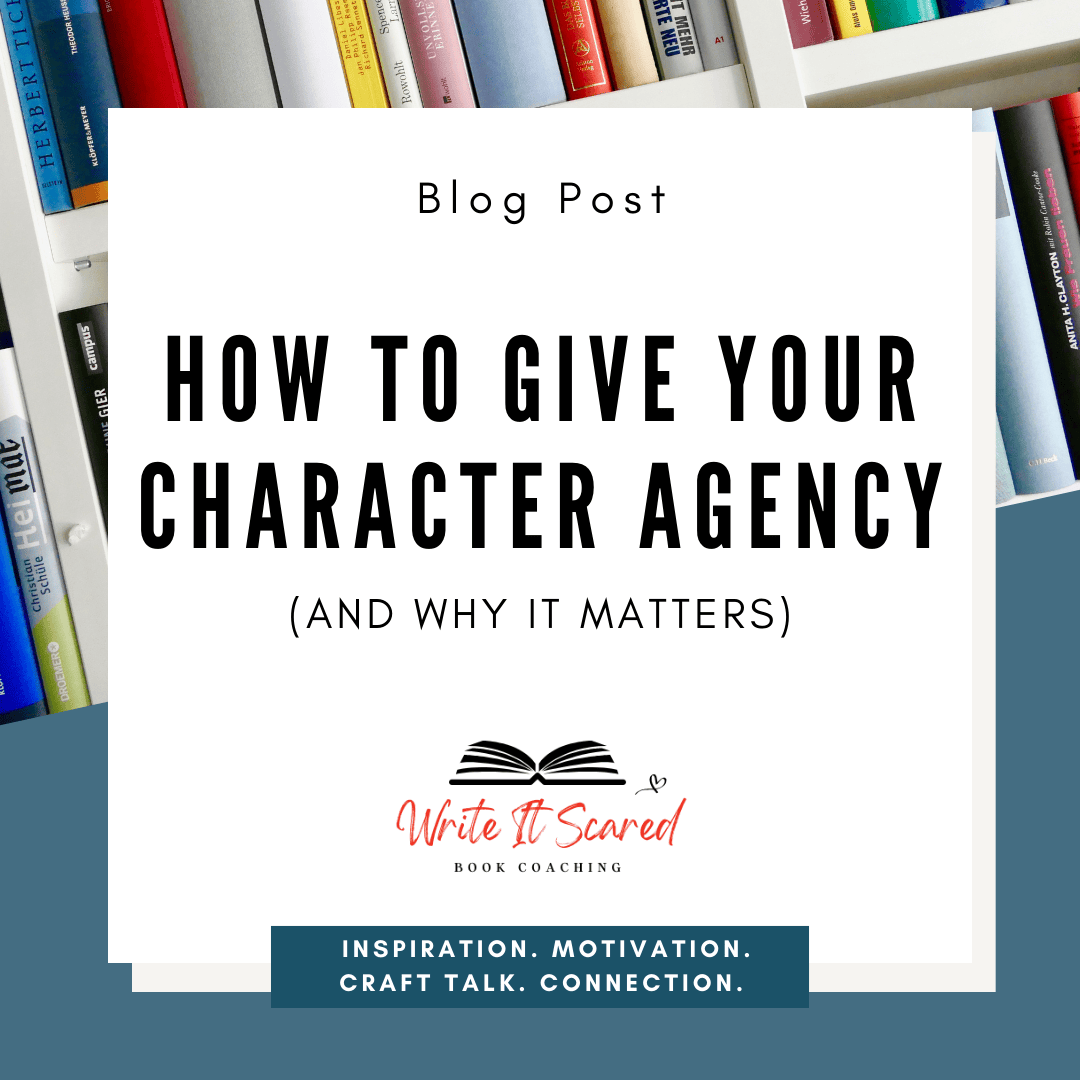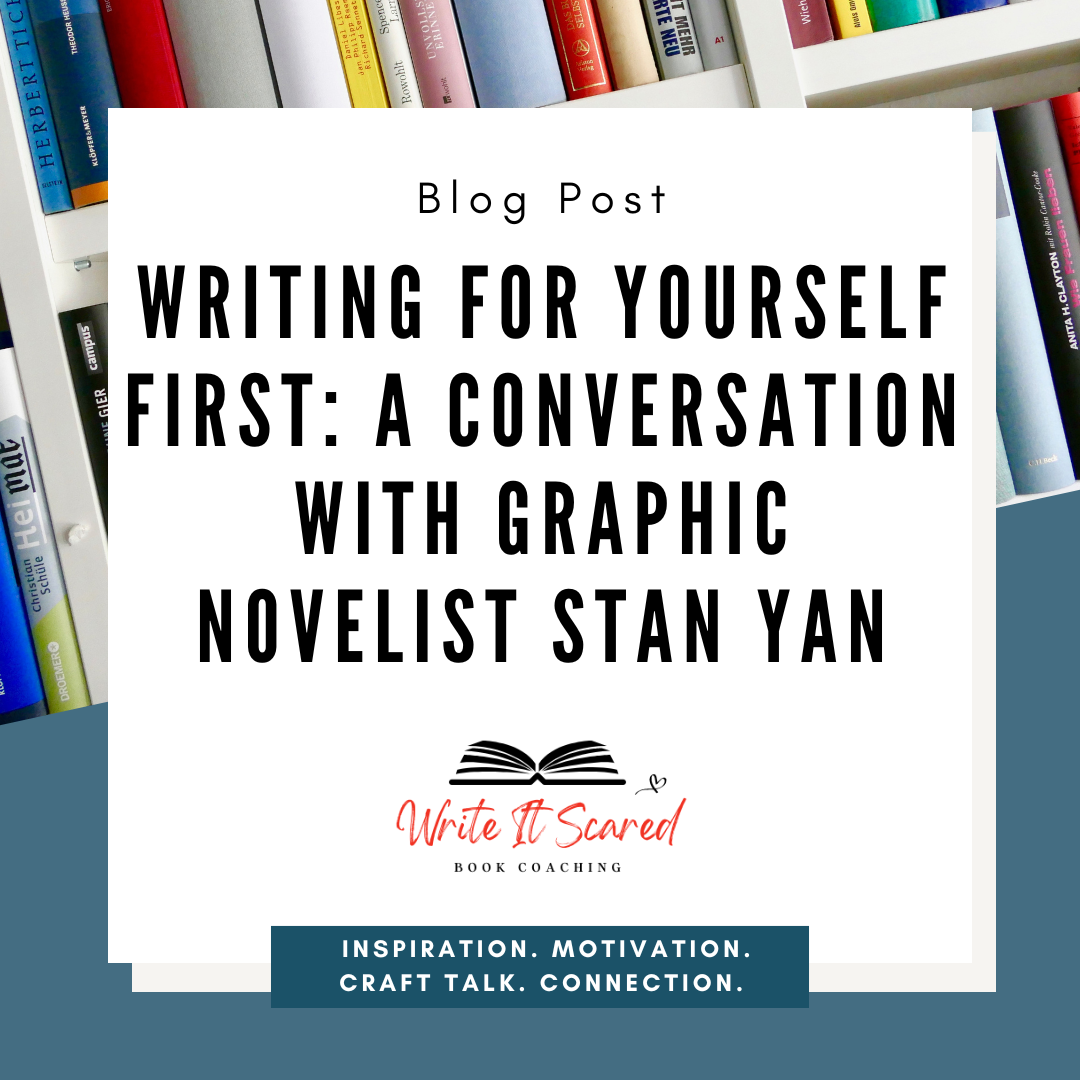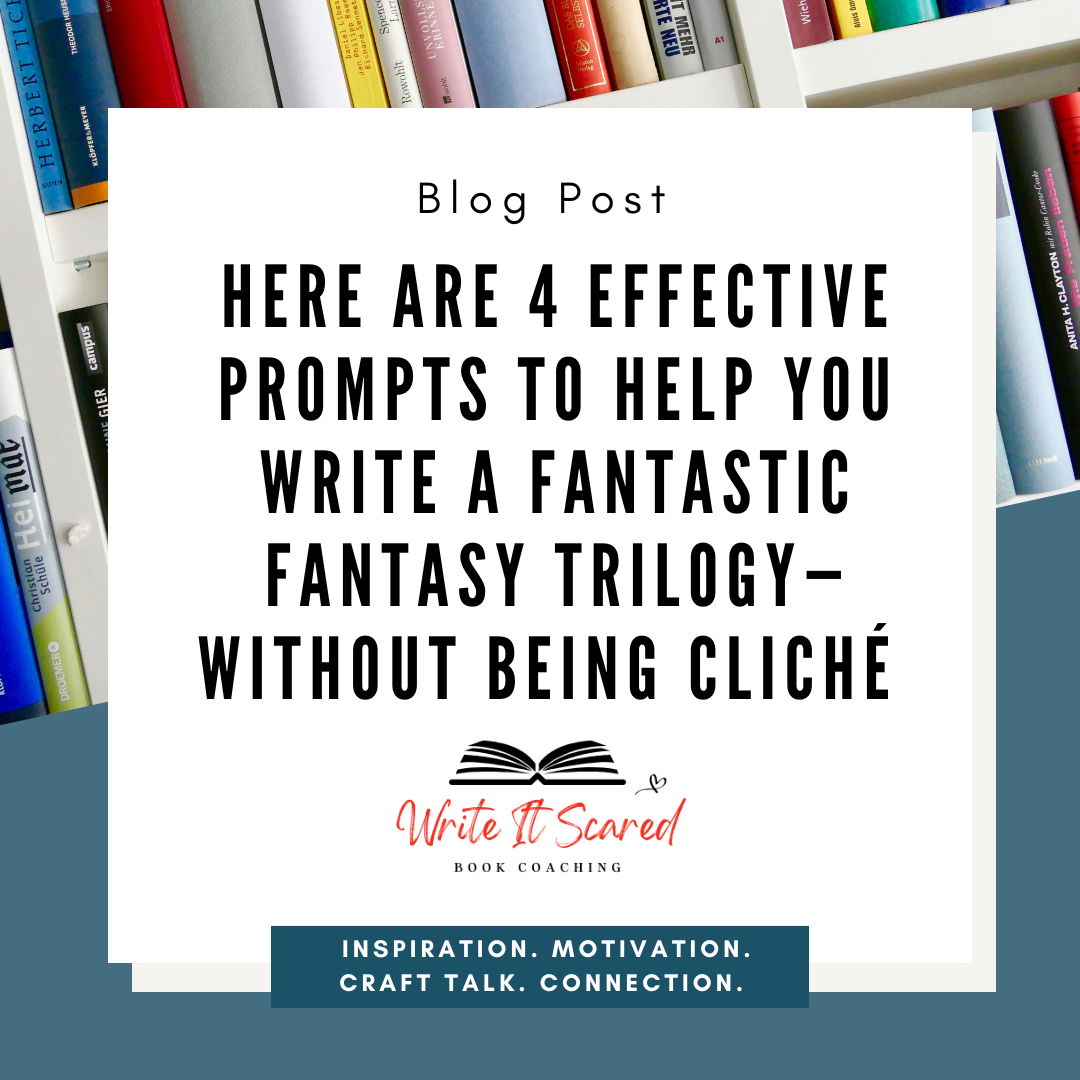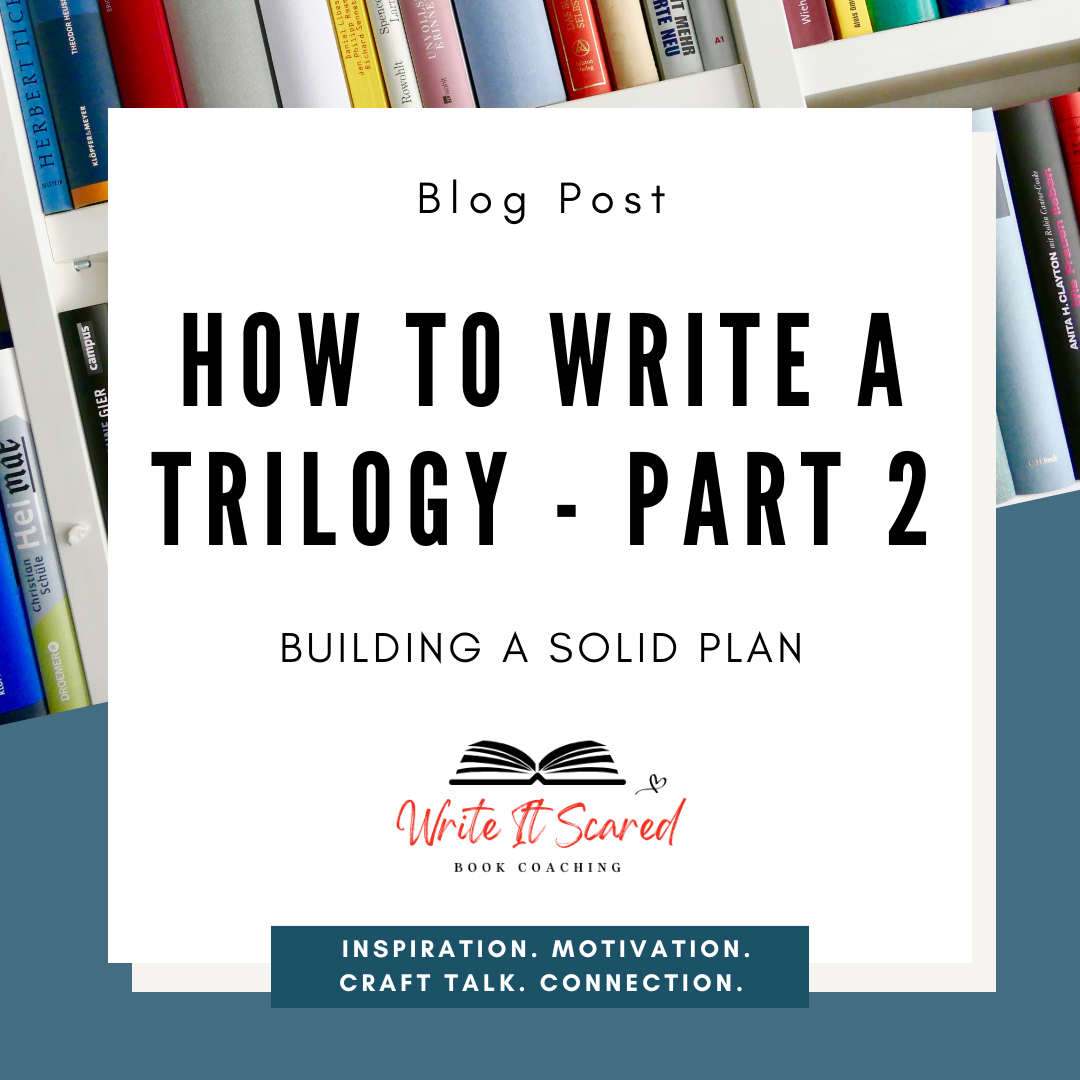
How to Create Stakes in Your Fiction Novel That Hook Readers
Want to write a novel readers can’t put down? Learn how to raise the stakes in your story so readers care deeply about your characters and keep turning the page.

How to Figure Out What the Hell Your Character Wants: Goals vs. Desires v. Needs
If you’ve ever struggled to untangle what your character wants versus what they need—or to sort out all the talk about “external goals” and “internal objects of desire,” well then you’re not alone. It really comes down to goals and desires. In this article, I’m digging into what makes goals and desires different, why both matter, and how to use them to braid plot and character transformation together!

How to Give Your Character Agency and Why It Matters
Character agency is one of those things we’re told we need, but all too often I see writers struggle with what it actually means, how to create it, and how to get it on the page. So I’m breaking it down for you this week!

Writing For Yourself First: A Conversation with Graphic Novelist Stan Yan
The first guest episode of season three is up on the podcast and it was a blast! I chatted with graphic novelist Stan Yan about how to write (and draw) horror that holds humor, why representation matters, and how it took nearly a decade—along with a total reimagining of the story—for his debut middle grade graphic novel The Many Misfortunes of Eugenia Wang to come to life.
If you’re a writer, illustrator, or creative of any kind trying to figure out how to allow a vision to evolve and learn to trust it, this interview is a gold mine.

How to Wield Narrative Drive to Make a Propulsive Story as a Fiction Writer
One of the most common things new writers struggle to harness—which is also the main issue I see with my clients’ developmental edits—is narrative drive. Or rather, the lack of it. It’s what makes readers invest in a character’s plight and keeps them turning the pages to find out what happens next and it’s crucial to a propulsive story. It’s a tough thing to learn to wield, but knowledge and practice are the keys to the kingdom, and I’m breaking it all down for you today.

How to Write a Fantasy Trilogy That Satisfies—Without Feeling Cliché: Four Ideas For Your Story
There’s a familiar rhythm to a lot of fantasy trilogies, and for good reason. This structure works. It’s satisfying. It echoes the deep emotional arc many of us crave in fiction: self-discovery, self-confrontation, and ultimately, the agency to embrace one’s self completely. But … it can also feel a little tired. So how do you write a trilogy that delivers the emotional payoff your reader expects without sliding into predictability? Try these 4 ideas!

How to Write a Trilogy - Part 2: Building a Solid Plan
Today we’re circling back to talk a bit more in depth about writing a trilogy, specifically a dynamic trilogy–a single overarching story told in three acts (each act is a book).
I didn’t finish the dynamic trilogy I was writing a few years back and I don’t want that for you if you’ve got an idea you want to span three books. So let me share the lessons I’ve learned.

Worldbuilding, Fantasy, and Courageous Writing with Author A.M. Deese
If you’ve ever felt overwhelmed by worldbuilding, intimidated by your messy draft, or unsure how to keep readers engaged in a long-running series—today’s episode is for you.
I sat down with fantasy author A.M. Deese (also known as Alexis Marrero Deese) to talk about how she builds immersive magical worlds, navigates the challenges of writing multi-POV fantasy series, and faces the fears that come with putting your words into the world.

How to Write a Trilogy - Part 1: Learning the First Steps
I don’t know about you, but when I invest in a character, a cast of characters, or a world, I gobble up everything written about them. And if it’s a trilogy, I’m head over heels gone. Today, let’s talk about the big-picture things you need to consider if you’re planning to write a trilogy so your readers don’t drop off halfway through. It all starts with understanding the kind of trilogy you’re writing.

Tips on Writing Dual Points of View from Author Alexandria Faulkenbury
Writing and publishing a novel isn’t for the faint of heart. It’s exhilarating, terrifying, exhausting, and rewarding—all wrapped up into one wild journey. I recently sat down with Alexandria Faulkenbury, whose debut novel, Somewhere Past the End, hits shelves in May 2025, and let me tell you—her story is as inspiring as it is relatable.

What’s Luck Got to Do With Your Writing Dream?
Since it’s St. Patrick’s Day, let’s talk about luck—specifically, how much (or how little) it actually matters when it comes to our writing success.

Three Revision Mistakes New Writers Make and What to Do Instead
Revision isn’t just about tightening sentences or making the language flow better. That’s part of it, but it’s only a small piece of the bigger picture.

How to Write Historical Fiction: Tips from Author Susanne Dunlap
How can a writer balance historical accuracy with compelling storytelling? And how much research is too much? Let’s dive into the craft of historical fiction with Susanne Dunlap, acclaimed author, writing mentor, and all-around historical fiction powerhouse.

The Mystery-Thriller Novel: What It Is and How to Write It
In this article, we’ll explore the mystery and thriller genres separately to understand their unique story obligations. We'll then combine them to see how they work together to create a satisfying story that fits into the mystery-thriller subcategory.

5 Key Questions to Help You Define Your Book’s Genre
In this article, I break down five key questions to help you classify your book more easily, from defining the writing style and target audience to determining the story's world and time period. With examples ranging from a 1960s feminist protest to a time-bending, intergalactic adventure, I'll walk you through how these five questions shape genre decisions.

Learning to Say No to Mom Guilt with Author MK Pagano
Are you a parent to an amazing human, or maybe more than one, who is the center of your world, and you’re also a writer with a passion for what you do and struggle to balance both, plus all the other stuff life throws your way?

Mastering Character Development: How to Get Your Characters to Spill Their Secrets
We all know that one-dimensional characters won’t cut it, and we strive to create dynamic and emotionally resonant fictional characters.
We also understand that to do that, we have to figure out what drives our characters to take action and engage in our plots. We have to figure out what they want, what they need to learn, what they fear, and the internal struggles that stunt them.
The million-dollar question is, “How?”

How to Decide if You Should Stick with Your Writing Project or Start Something New
Is it shiny object syndrome or should you actually be writing something else: What to do when you feel like you are at a creative crossroads.
It never fails—at least for me and many of the writers I work with—that at some point during the process of planning, drafting, or revising a novel, we get the itch to walk away. And I don't mean take a break for a week. I mean shelve the entire thing, bury it in a drawer for an undetermined amount of time, and focus our creative energy elsewhere.

How to Write a Horror Novel that Satisfies Readers
Even if you don’t write horror specifically, understanding this genre will make you a better storyteller. Horror is a genre that transcends, crosses literary lines, and many of the novels we love today blend in elements of this incredibly versatile storytelling machine. Not only does horror transcend, but it exists on a spectrum: from the cozy, quiet creep to full-on, in-your-face slasher/splatter gore.

Mastering the Art of Writing a Successful Query Letter With Julie Artz
Are you thinking about querying your manuscript soon? Have you tried writing this mystical document called the query letter meant to attract the representation of your dreams?
Nervous?
Yeah, I feel you. Been there.
It’s a lot of pressure to put on three paragraphs.
